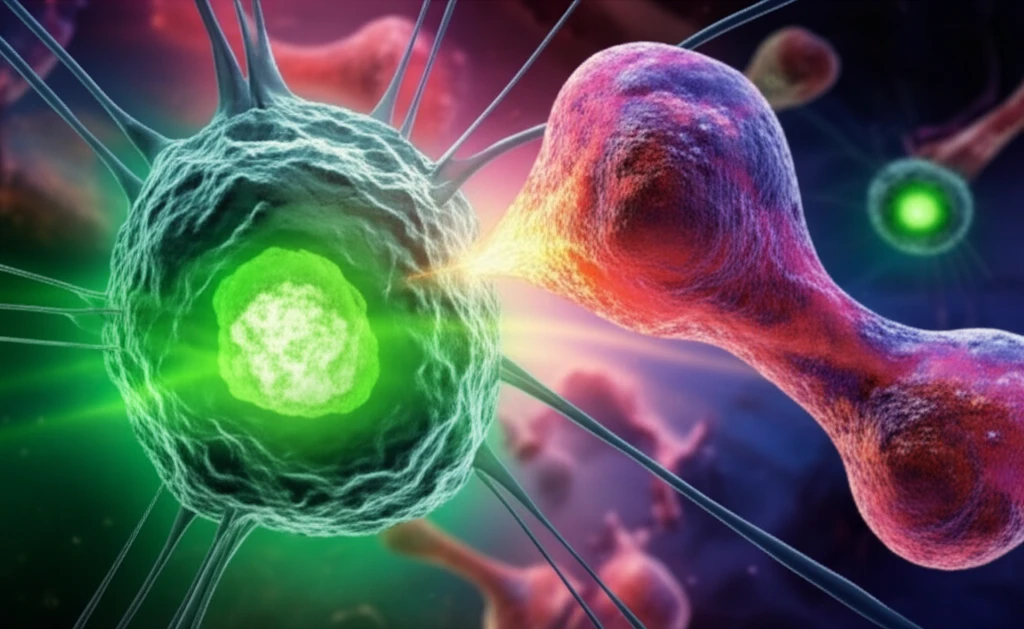
Unlocking Natural Killer Cells: How CD25 Expression Could Revolutionize Cancer and Infection Therapies
"A New Marker for Cytotoxic Activity in Natural Killer Cells"
Natural Killer (NK) cells are a critical part of our immune system, acting as the first line of defense against infections and cancer. They're like the body's rapid response team, quickly identifying and eliminating threats without needing prior exposure. Scientists have been working hard to understand exactly how NK cells work, hoping to harness their power for new therapies.
One of the biggest challenges is finding reliable ways to measure NK cell activity. Current methods are complex and time-consuming, making it difficult to quickly assess how well these cells are functioning. What if there was a simple marker on the surface of NK cells that could tell us how active and effective they are? That's the question driving exciting new research.
A recent study suggests that the CD25 receptor, found on the surface of NK cells, could be just such a marker. Researchers have found a strong correlation between CD25 expression and NK cell cytotoxic activity, meaning that the more CD25 an NK cell has, the better it is at killing target cells. This discovery could revolutionize how we study and utilize NK cells in immunotherapy.
The CD25 Connection: Linking Receptor Expression to NK Cell Function

The study, conducted by researchers at the University of Łódź, Poland, investigated the relationship between CD25 expression and various markers of NK cell activity. They stimulated NK cells with lipopolysaccharide (LPS), a component of bacterial cell walls that triggers an immune response, and then co-cultured them with HeLa cells, a common target cell line used in cancer research. The researchers then measured both CD25 expression and cytotoxic activity.
- MTT Assay: A measure of cell viability, indicating the number of dead target cells (r=0.68).
- Granzyme B Release: Granzyme B is an enzyme released by NK cells to induce apoptosis (cell death) in target cells (r=0.89).
- IL-2 Production: Interleukin-2 (IL-2) is a cytokine that promotes the growth and activity of immune cells, including NK cells (r=0.78).
- IFN-γ Production: Interferon-gamma (IFN-γ) is another cytokine that enhances NK cell activity and helps to fight infections (r=0.57).
The Future of NK Cell Therapy: CD25 as a Screening Tool
The discovery of CD25 as a potential marker for NK cell cytotoxic activity opens up exciting possibilities for immunotherapy. It offers a simple and efficient way to screen NK cells for their ability to kill target cells and produce cytokines. This could be invaluable for selecting the most potent NK cells for adoptive cell therapy, a treatment approach where NK cells are collected from a patient, expanded and activated in the lab, and then infused back into the patient to fight cancer or infection.
